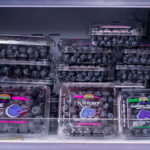Despite signs of recovery, Shanghai port congestion to continue

China’s government has eased Covid related restrictions on the port of Shanghai, and there are some signs of a recovery. But the congestion’s ripple effect continues around the world, as labor and infrastructure restrictions still plague the Chinese port.
The Global Times reported that Shanghai’s “container throughput in April [was] recovering to 80 percent of last year’s levels”.
In an interview, Jeremy Nixon, CEO of Ocean Network Express Pte., recognised that “every government is doing their best to address the issue, but labor [...] and infrastructure shortages still exist”.
“We’re putting more ships into service, but we can’t magic up more when we’re running out”, he added.
This sentiment is echoed in a report by Bloomberg, which concluded that the easing of Shanghai’s lockdown as a result of a drop in COVID-19 cases won’t necessarily bring immediate relief to the global shipping crisis.
China’s Zero Covid Policy has affected supply chains, hampering both production and delivery. Last month, according to data from Windward, a fifth of all the world’s containerships were stuck in port congestion.
In a statement, the Port of Oakland described how disruption in Shanghai, home to the world’s largest port and major transportation hub, had also caused “a ripple effect on ocean carrier scheduling” across the globe.
From Los Angeles to Hamburg, scores of ships have been waiting for weeks to berth at ports. In Vancouver, the wait is three weeks. Port of Oakland cargo is down by 7 percent on the same time last year, with imports and exports falling 17 and 18 percent, respectively.
There is currently a queue of 130 vessels waiting off Shanghai’s port, with the number of container ships spotted in the Shanghai and Ningbo-Zhoushan region still 11 percent above the last year’s median.
Furthermore, Shenzhen and Hong Kong hit a seven-month high with 184 vessels waiting on Tuesday, in comparison to just 95 this time last year. Planes, trains and trucks have also experienced similar problems.














































